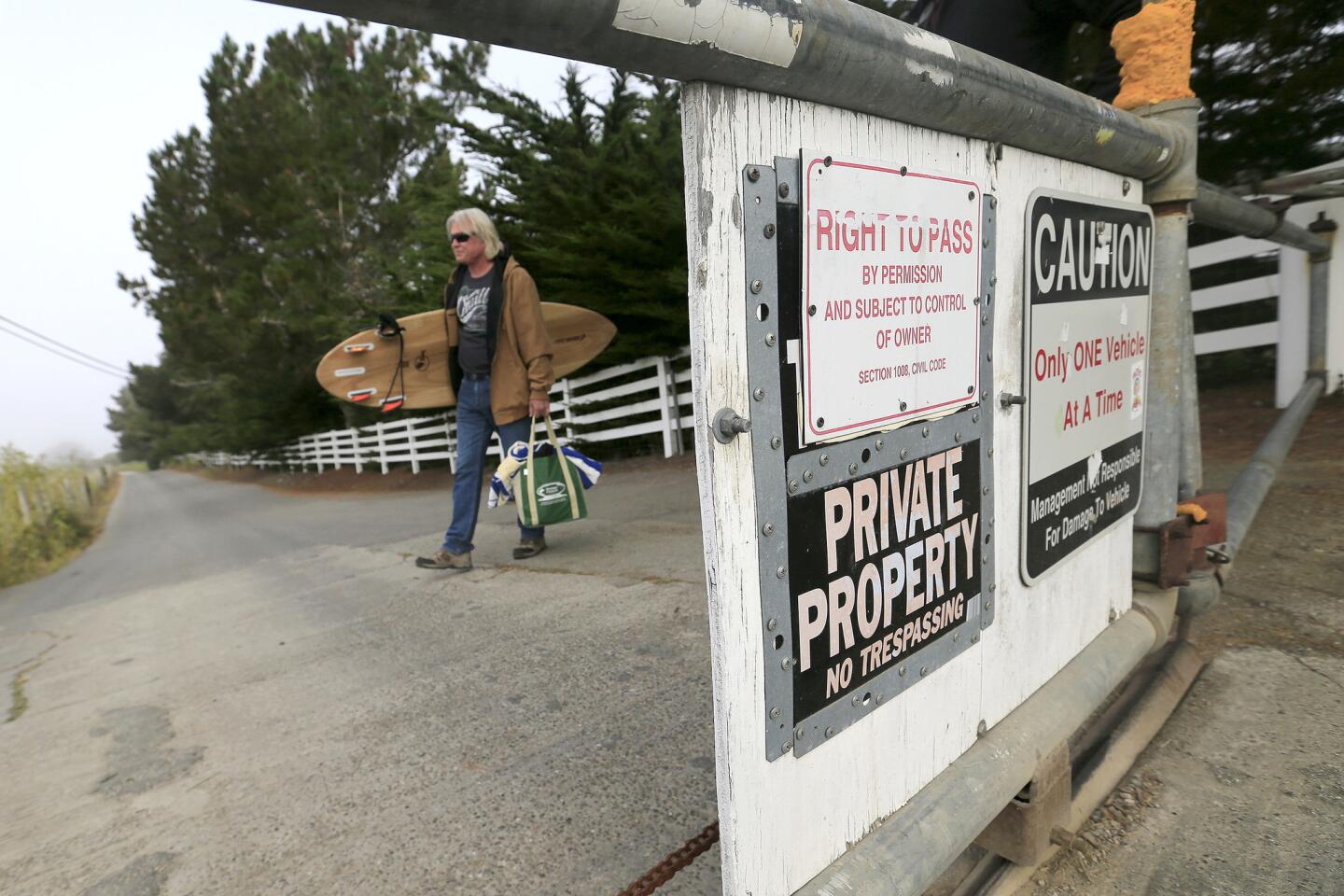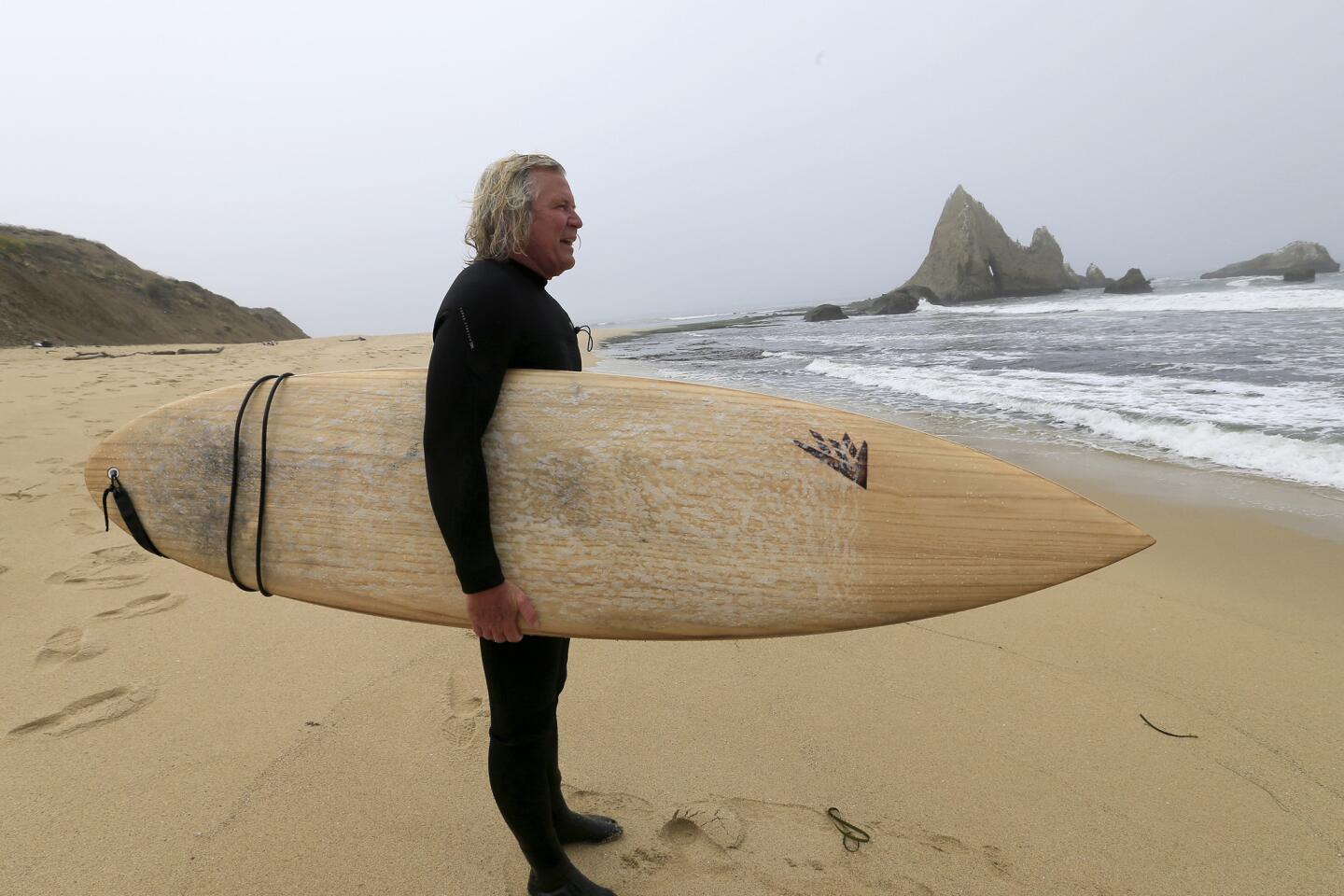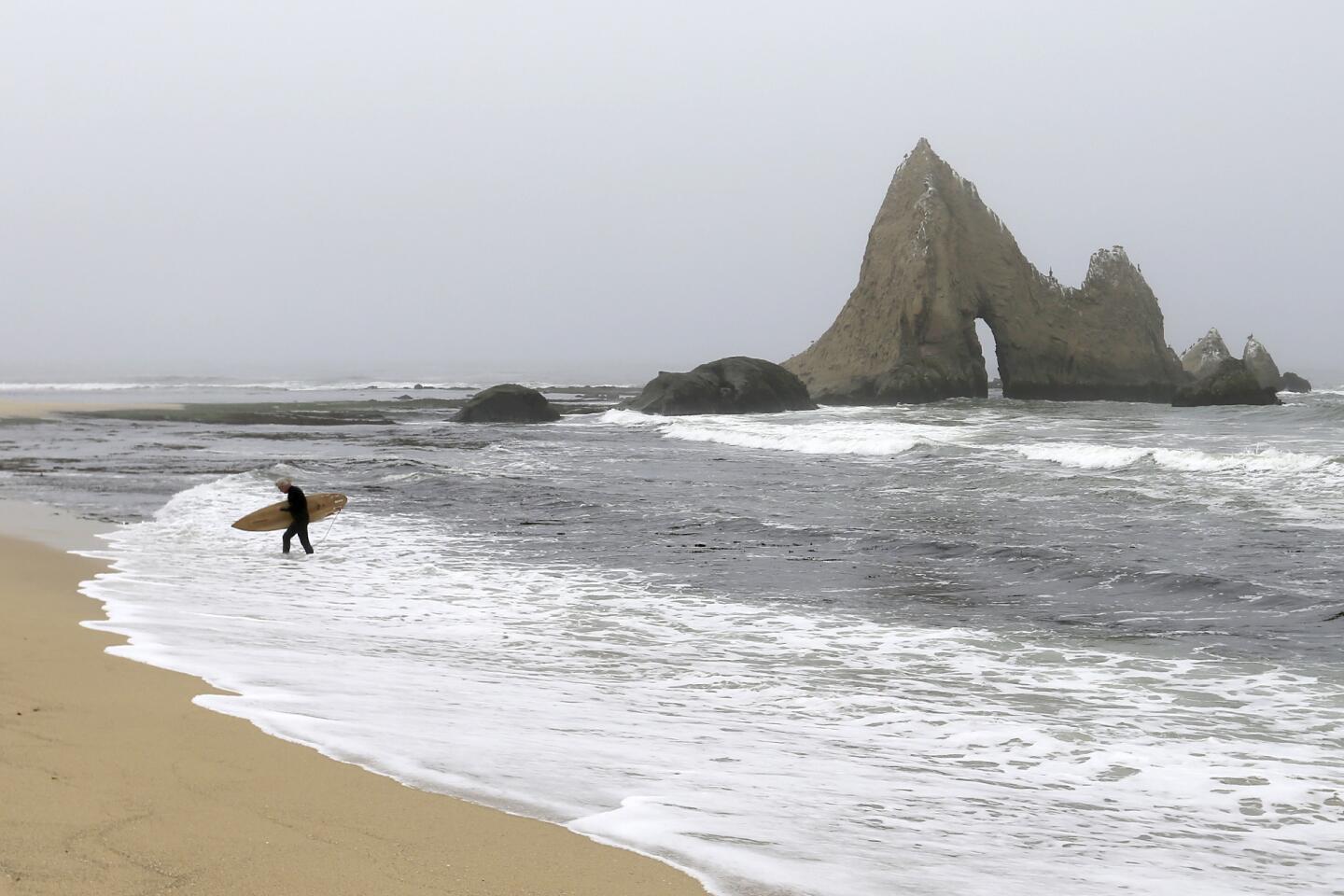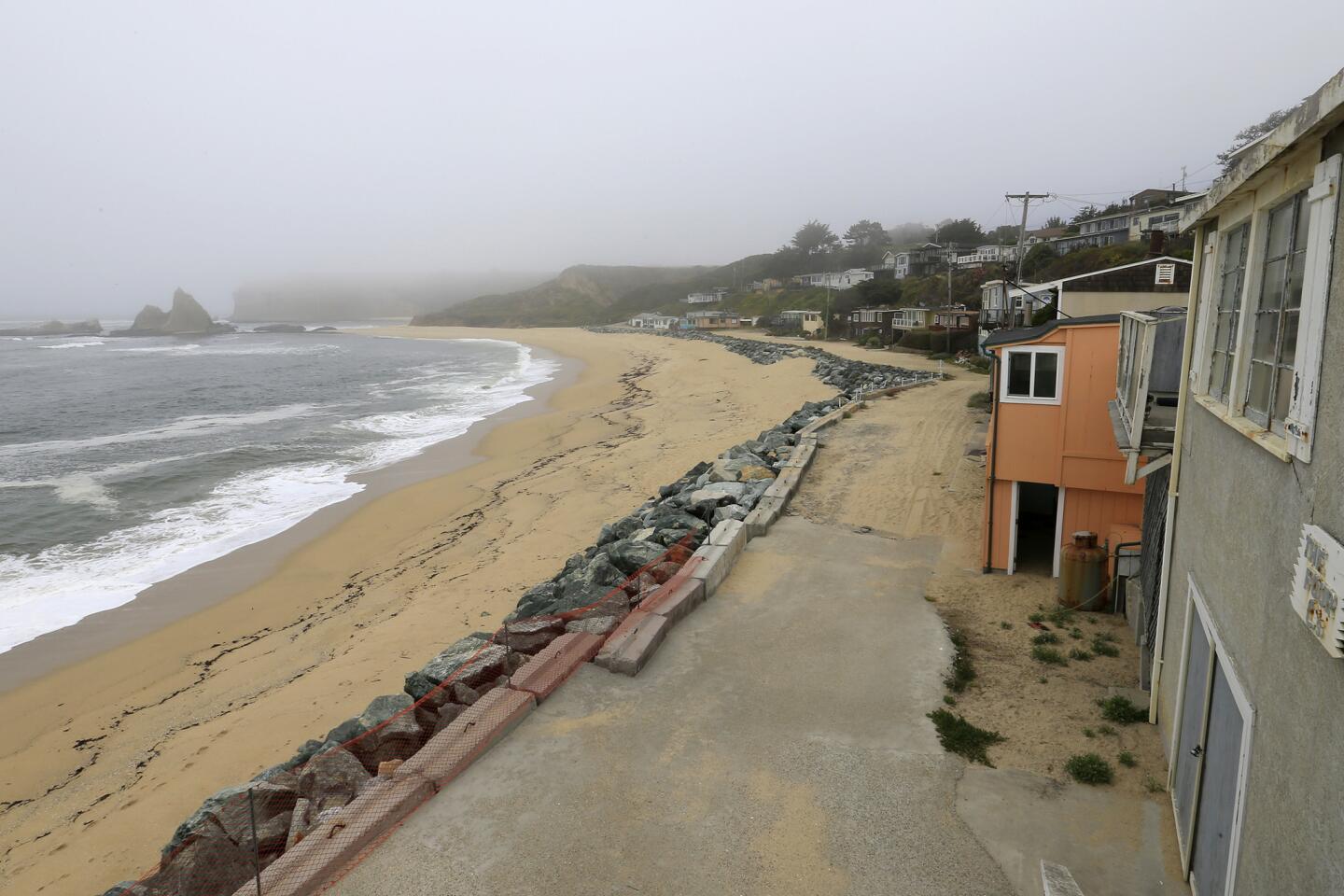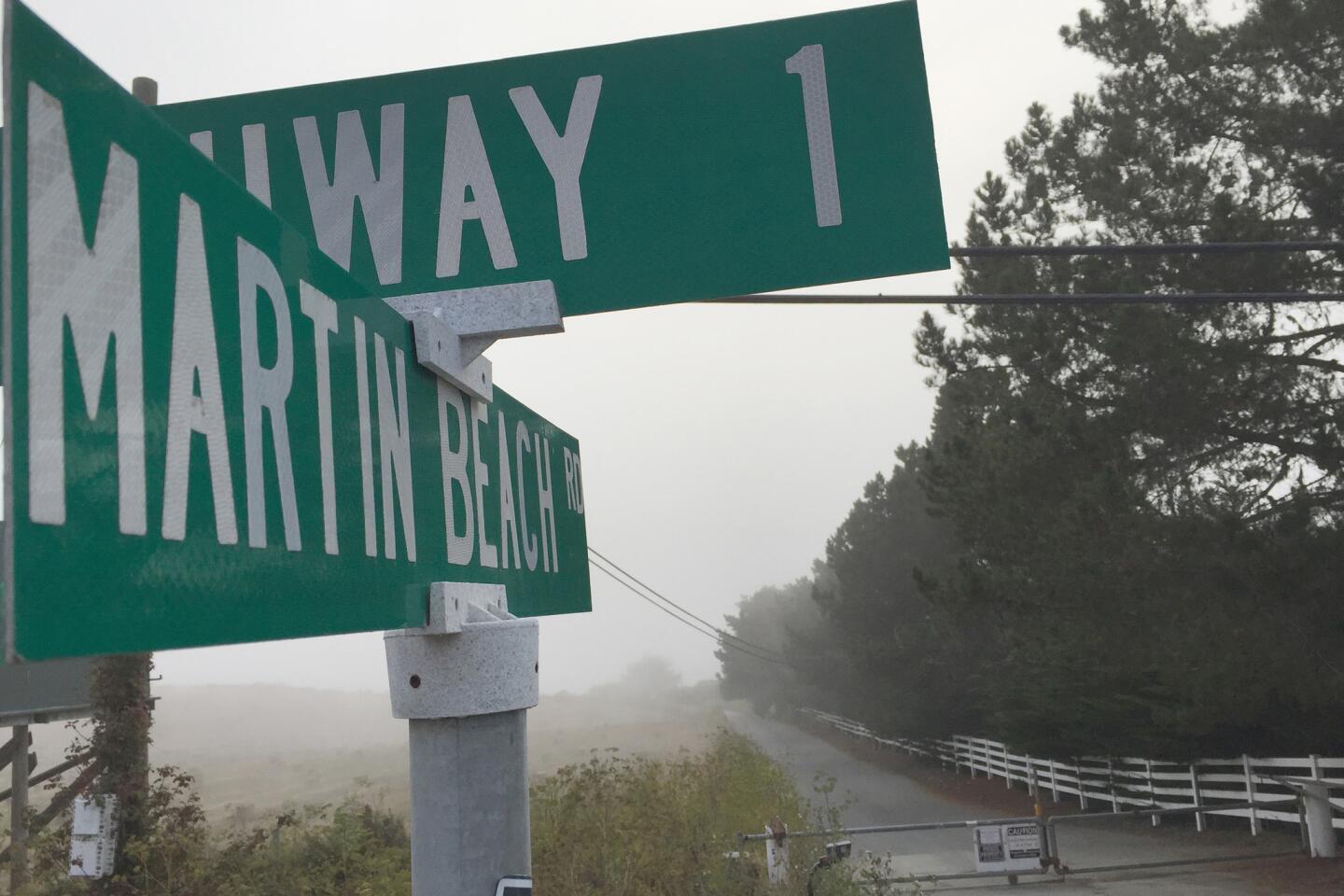Conflict of interest in Coastal Commission lawsuit leaves lots of questions
- Share via
Six years after the death of the man who wrote California’s landmark coastal protection act, his most famous quote keeps echoing:
“The coast is never saved. It’s always being saved.”
What did Peter Douglas, the first executive director of the California Coastal Commission, mean by that?
He meant the job would never be done because he understood the economic and political forces that conspire to bushwhack the goals of protection and public access to California’s 1,100-mile coastal wonder.
Smart guy, Peter Douglas, and this week you can almost hear him calling out, “I told you so.”
As my colleague Rosanna Xia reported Tuesday, there’s been a development in the case of Silicon Valley billionaire Vinod Khosla, who’s been fighting to keep the public off a beach it has enjoyed for decades near Half Moon Bay.
Not only is Khosla appealing to the U.S. Supreme Court to keep the public away from property he bought in 2008, but his attorney is challenging the Coastal Act itself, calling it Orwellian.
For those who need a quick history lesson, the Coastal Act grew out of voter-approved Proposition 20 in 1972, which established laws to prevent the private commandeering of the state’s greatest natural treasure. It fixed the principle that no individual owns the California coast, everyone does.
Khosla, who has established himself as one of the most arrogant people in state history, is now Exhibit A in the case for why we need the Coastal Act more than ever.
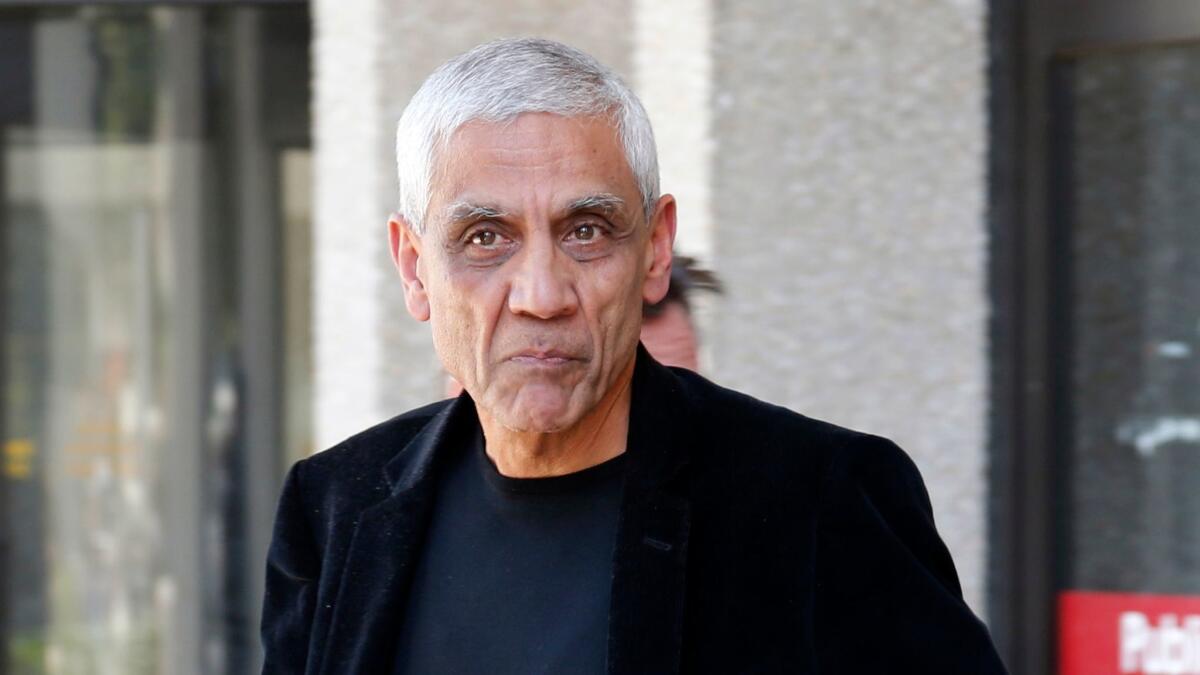
The other current threat to coastal protection can be found in a San Diego courtroom, where the nonprofit group Spotlight on Coastal Corruption is suing two current and three former California coastal commissioners for hundreds of alleged violations of rules regarding private communications.
When I dropped in last week, I came away with nothing but questions, and with new reasons to worry. For one thing, the state attorney general’s office, which is defending the commissioners, had offered a deal in which taxpayers would have had to fork over $250,000 to settle the case.
Why should we have to pay a nickel?
Spotlight rejected the deal, and if it wins, the commissioners could be fined millions of dollars. Would we pick up the tab for that too?
Deputy Atty. Gen. Joel Jacobs made clear that his defense of the commissioners hangs, in part, on the argument that “substantial” rather than complete compliance with the rules on private meetings — known as ex partes — is all that’s required of coastal commissioners.
Really? Then why have rules at all if cutting corners is OK?
As The Times has reported, there’s no question that on occasion, commissioners did not follow the rules. They either did not file reports detailing the nature of private communications with people who favored or opposed proposed projects, or they filed the reports late, or they did not fully explain what the conversations were about.
Or they didn’t write the reports themselves. They let the lobbyists do it for them, and that’s what was entered into the public record.
Shouldn’t they all be set adrift on a milk-carton-and-coconut raft based on that alone?
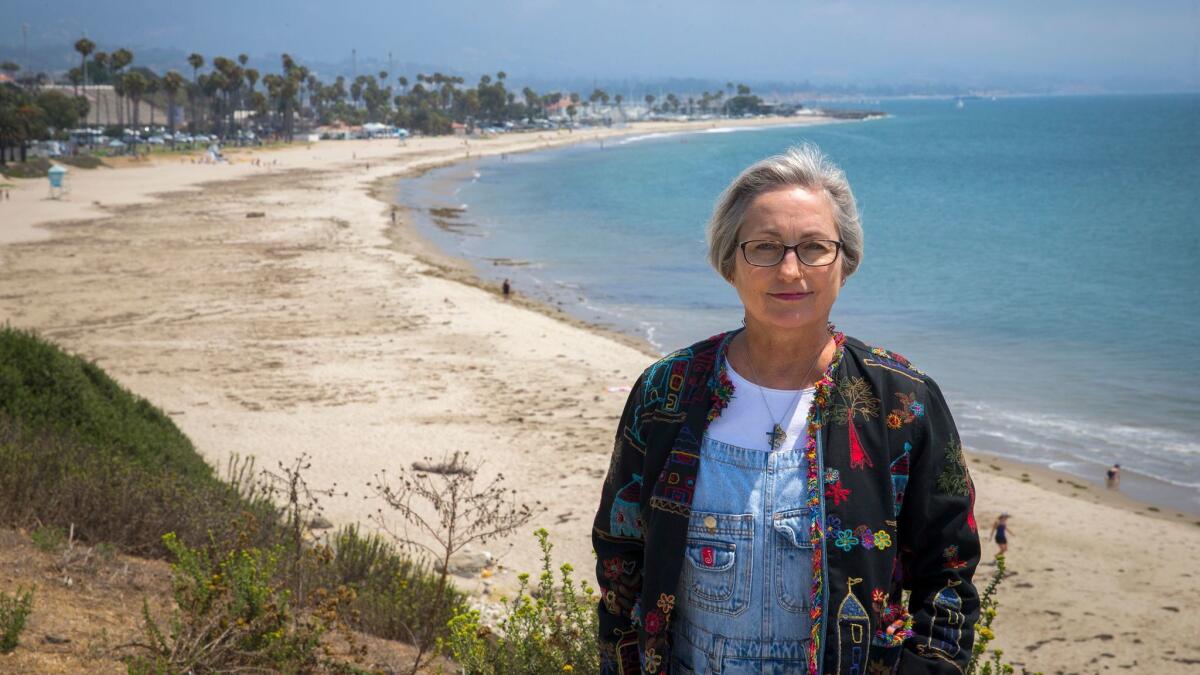
This rotten system put the public, and those with opposing views on a project, at a disadvantage. Several lawsuits have been filed over the sloppy handling of ex partes by commissioners, and last year, an Orange County judge was flabbergasted in a case involving a coastal housing project in which six of 10 commissioners did not appear to have followed the rules on private communications.
“I find it strange that the AG is arguing that substantial compliance is good enough. Adhering to the rule of law is more important now than ever,” said Susan Jordan of the California Coastal Protection Network.
“If you send a signal that public officials don’t have to worry because they don’t have to meet the letter of the law, and if they violate the law and they don’t have to pay consequences, that is not a message that California’s officials need to send,” she said. “Everything must be aboveboard.”
Sunshine proved to be a good disinfectant, and some — but not all — of the biggest lightweights, wannabes and political hacks have moved on from the commission. But even with a generally improved crew on the dais, I still think a ban on ex parte communications would be good for the agency and the coast.
Most agencies don’t allow them. In the case of the Coastal Commission, the ex parte rules were written to discourage private meetings, not turn them into a multimillion-dollar windfall for lobbyists who’ve been milking the system for years.
Another matter I brought up last week was the question of why the state attorney general’s office is defending the five commissioners. They’re the ones who got sued, not the agency known as the Coastal Commission.
The deputy attorney general on the case told me to call his press office with my question.
I called and emailed, and here’s what I got back:
“We refer client matters to the client. Please contact the California Coastal Commission.”
Like I said, the agency didn’t get sued, so how can it be a client? And besides, when do lawyers ever tell the press, “No comment, talk to our clients?”
Anyhow, the Coastal Commission response was that although the defendants are the commissioners, and not the agency, the “Coastal Commission authorized the attorney general’s office to represent the commissioners, unless there is a conflict with the agency.”
The attorney general’s office followed up to say the Coastal Commission was required to do it this way “because the allegations concern conduct within the scope of their responsibilities as commissioners.”
How is repeatedly ignoring the law on private communications within the scope of their responsibilities? If they deliberately chose to operate that way, it was clearly outside the scope of their responsibilities.
And as for the idea that the Coastal Commission authorized the attorney general’s office to defend the commissioners “unless there is a conflict with the agency,” guess what? I don’t have a law degree, but the potential conflicts were obvious, and I can guarantee you that all the parties involved were well aware of them.
To name just one, part of the sniveling defense by commissioners in San Diego is that if their ex partes were not properly filed, don’t blame them. It was the Coastal Commission staff’s fault.
Sure, let’s throw the staff under the bus. I’m surprised they didn’t say a harbor seal ate their ex partes. But let’s blame the underpaid, overworked staff, and if that doesn’t work, and the commissioners lose, let’s take their fines out of the agency budget and — indirectly — out of the pockets of taxpayers.
To make this line of defense all the more convenient, the staff has no representation in this case.
Spotlight on Coastal Corruption has a lawyer.
The accused commissioners have a lawyer.
The staff does not have a lawyer.
How is that not a conflict? And if the commissioners lose, who can possibly decide — without a conflict of interest — who should pay the fines?
Peter Douglas warned us.
You can’t look away for a minute.
The coast is never saved.
Get more of Steve Lopez’s work and follow him on Twitter @LATstevelopez
More to Read
Sign up for Essential California
The most important California stories and recommendations in your inbox every morning.
You may occasionally receive promotional content from the Los Angeles Times.
